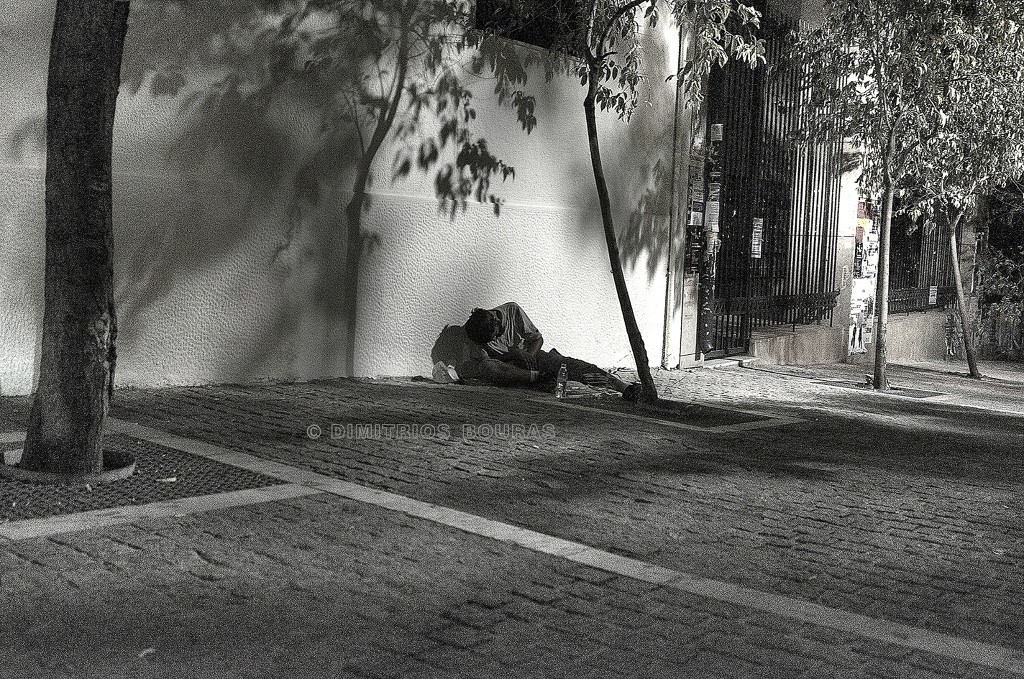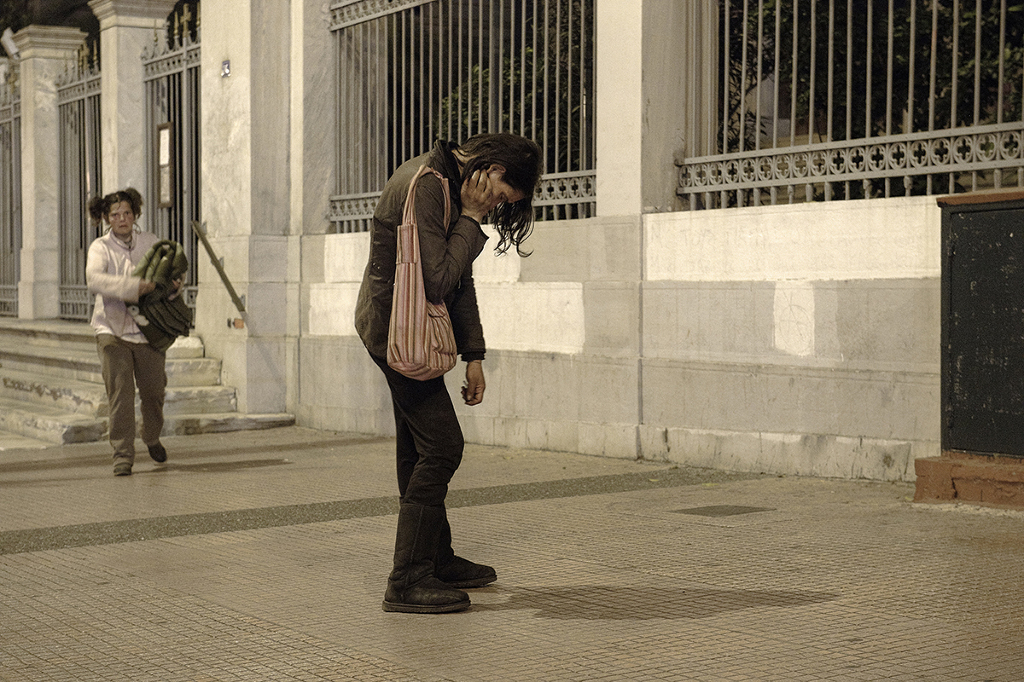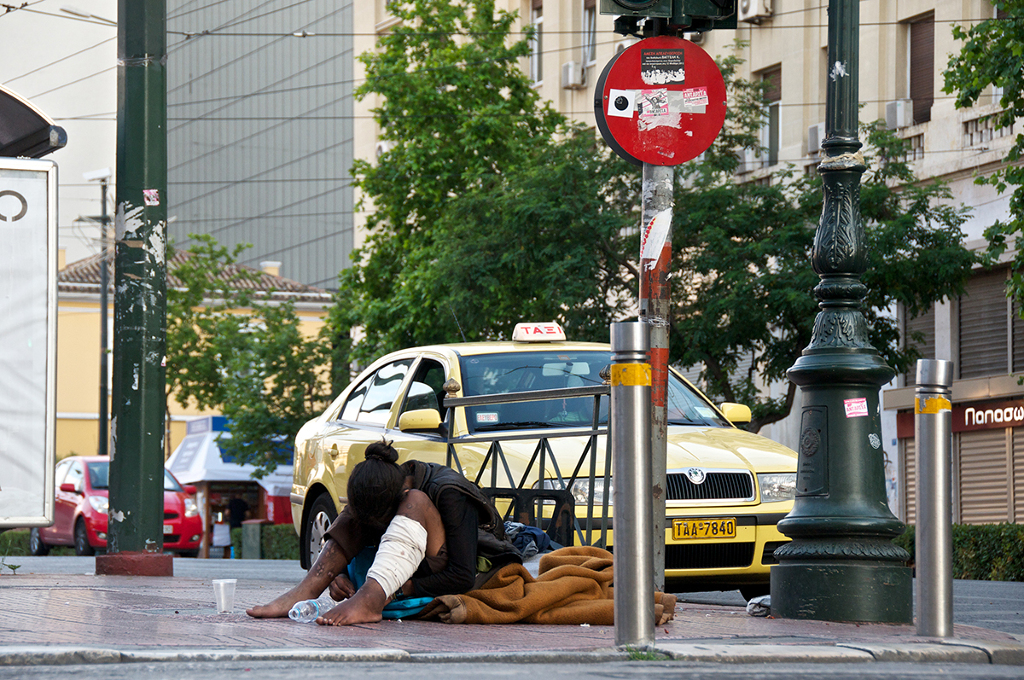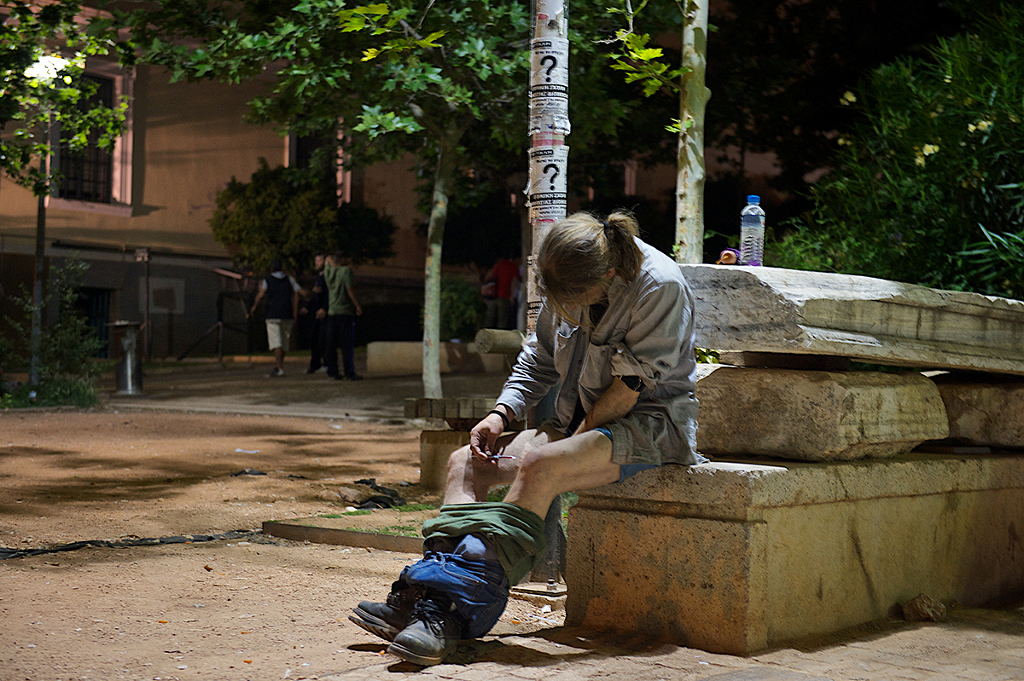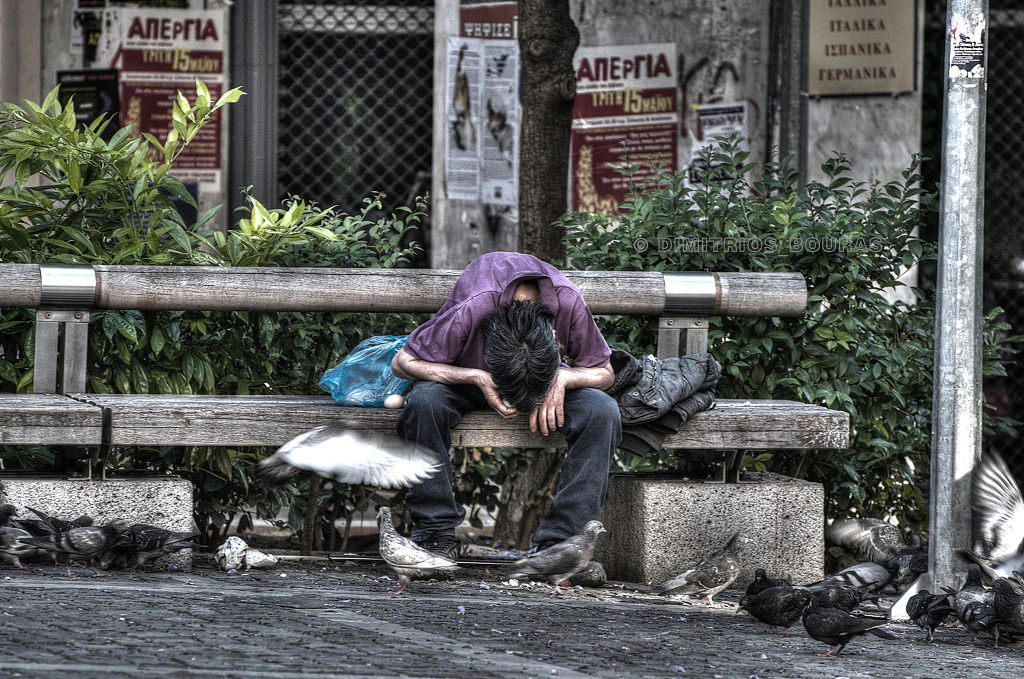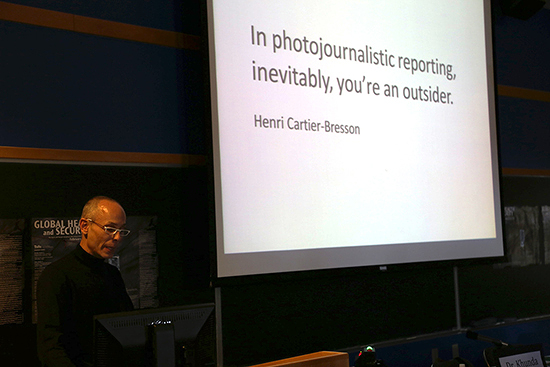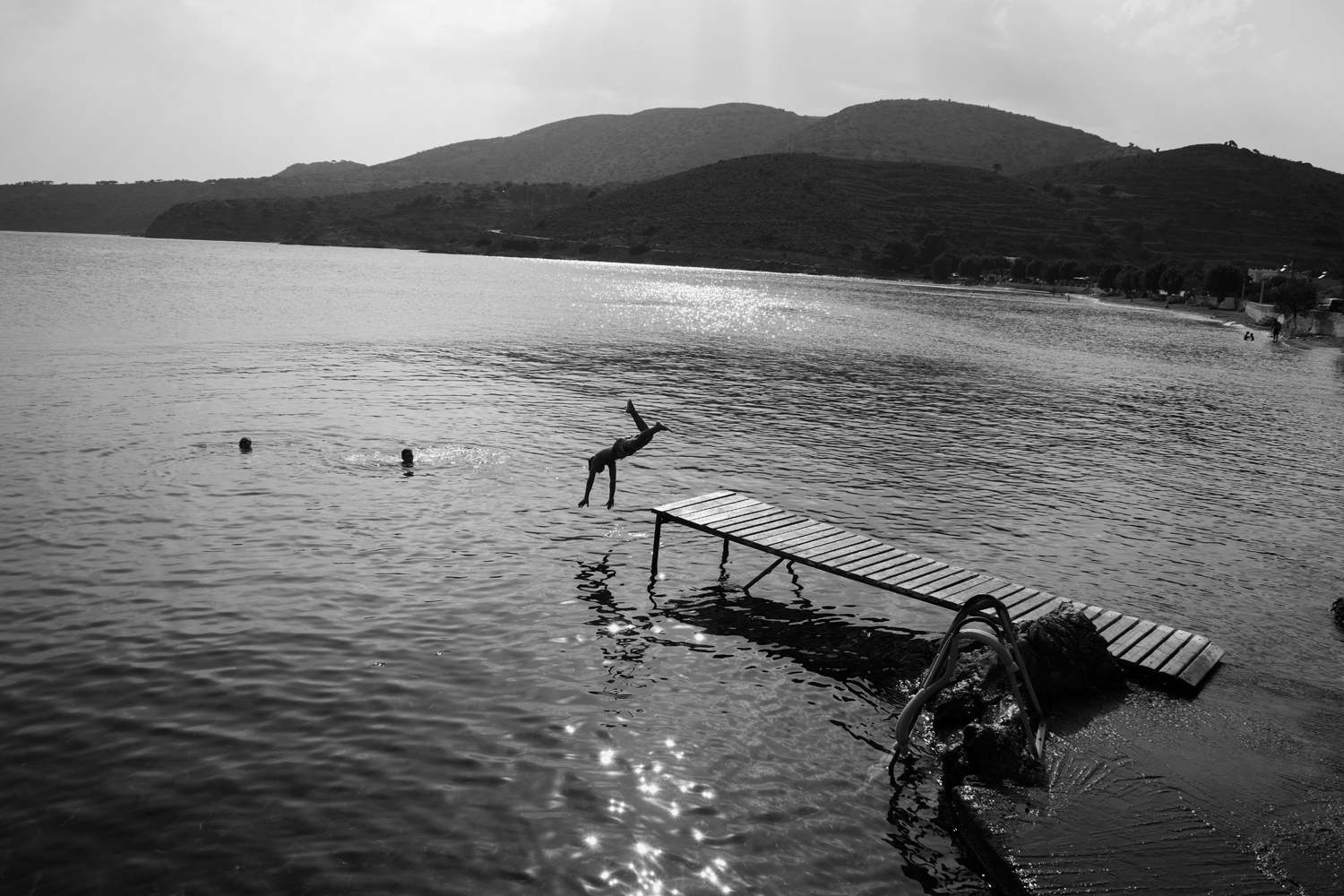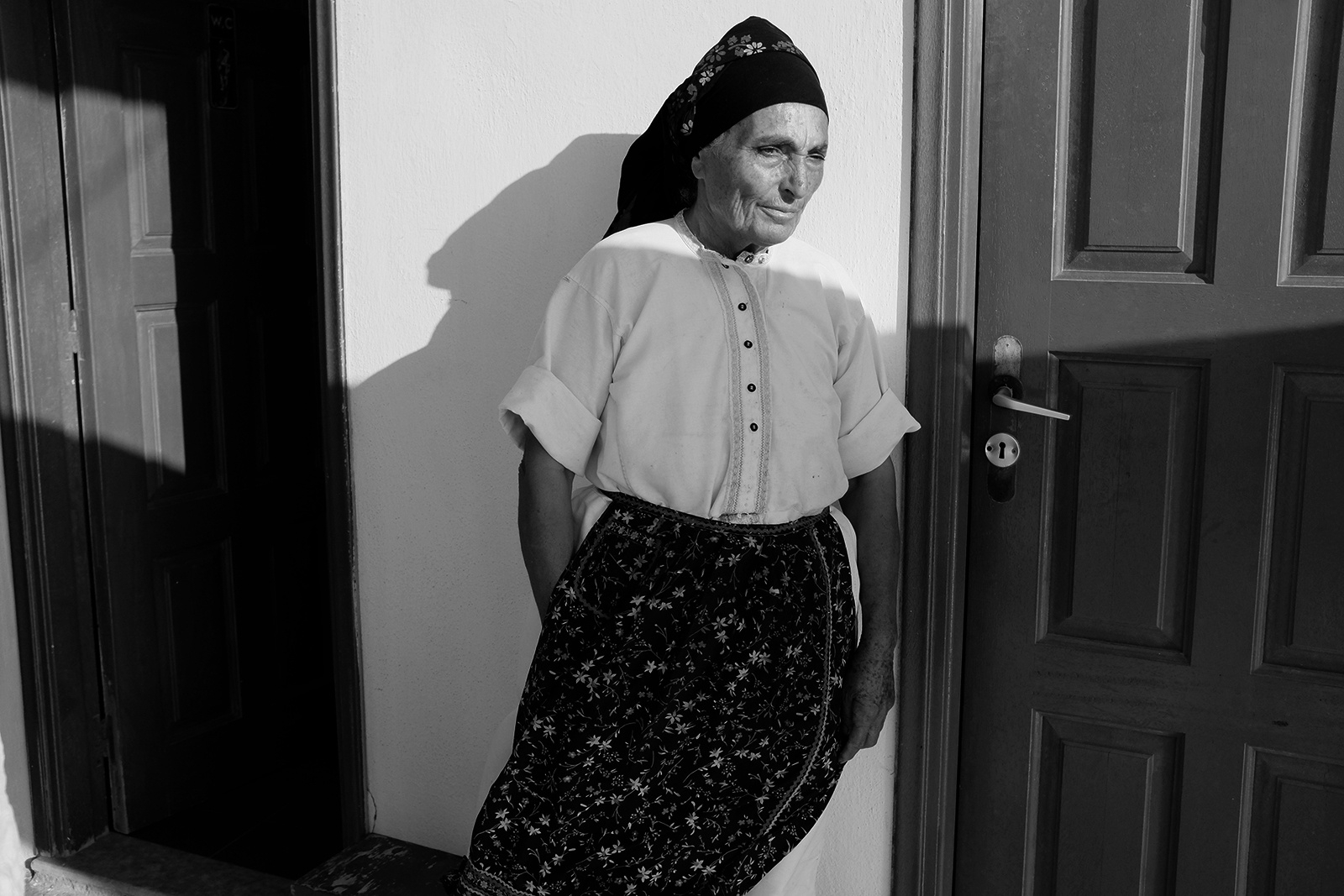Drawing attention to a growing humanitarian crisis that is festering in the shadow of an economic meltdown, and to the current state policy of protecting public health by penalizing rather than treating the vulnerable social groups that have been branded as transmitters of disease.
In photojournalistic reporting, inevitably, you’re an outsider.
Henri Cartier-Bresson
Accepting the inevitable nature of the outsider, I have nevertheless devoted the past 3 years in understanding and documenting the growing public health crisis that has overtaken the city of Athens, Greece. The epidemic spread of HIV among Intravenous Drug Users (IDU).
Every single day, when I have not gone missing for a mission, I load my gear and descend to the center of Athens, where the market for drugs is rampant. Endless hours of loneliness touring the streets. No matter though how cold or dangerous it gets, at the end of the day, my house and my bourgeoisie will be there to provide me safety and security. And I will always remain an intruder, an outsider.And if, on my return, the washing machine will clean my dirty clothes, and liters of disinfectant solution cleanse my skin of germs and bacteria, my soul will continue to roam the streets and neighborhoods of the ‘badlands’ in search of those stories. Stories, souls ... always tender and sensitive, trapped inside families, trapped inside of needs and “shoulds”, trapped in religions and prejudices, in anything that circumstances dictate. Trapped inside blockades and dead end, entrapments and circumstances.
I don’t want my pictures to be "comfortable" - to offer peace of mind. In the contrary, I seek to disturb that peace – and to make people question. And if the text and pictures are shock or provoke, it is because they remind this which you chose to forget, or deliberately ignore.
They takes you where you have no right to be, make you the intruder and observer. They will make you confront a reality that will make you realize your fears and your endurance.
I'm trying not to create photographs that viewers will look at and think: "What a good photographer he is," or "Look what an interesting composition he can make." I want the first impact, and by far the most powerful impact, to be about an emotional, intellectual and moral reaction to what is happening to these people. I want my presence to be transparent.At best, there's a kind of grim satisfaction that perhaps I brought some attention, and focused people's attention on these problems. Perhaps it brought some relief. But its shifting sand that keeps moving.
Dimitrios Bouras born in Thessaloniki, Greece and grew up in several cities in Greece.Images from Henri Cartier Bresson and Oriana's Fallaci book "VIETNAM" had a powerful effect on him and were instrumental in his decision to become a photographer. He has been involved in photojournalism since 1980 as a freelance photojournalist researching and reporting, from field, on humanitarian issues, crisis issues and war coverage around the globe. He has covered special assignments in Greece, Bulgaria, FYROM, Serbia, Bosnia and Herzegovina, Italy, Afghanistan, Egypt, Turkey, Syria and other countries transferring the human struggle to his images and texts.
He regularly contributes as a freelance photojournalist (under an alias). His work has been exhibited in Greece and internationally. Currently resides in Athens, and his current projects are dealing with drug abuse issues in Greece, homelessness, the life of people with disabilities in Greece, the current social situation in Greece after austerity measures and the “Arab Spring” by covering extensively the uprising in Egypt.He is an active volunteer in “Positive Voice” an Athens based NGO working against the spread of HIV.Recently presented the outcome of his research over the epidemic spread of HIV in Greece, among IDU users in the 28th Annual EPIIC International Symposium on “Global Health and Security” in the Institute for Global Leadership - Tufts University, Boston, USA.
( 21~24 Feb. 2013) Session's topic: "Bystanders, Perpetrators and Survivors: A Global Health Perspective on Sexual Violence". Following EPIIC’s symposium, the outcome of this research presented in the international conference “Ethics and Aesthetics of Epidemiological Photography” September 14, 2013 University of Cambridge, CRASSH, UK.

